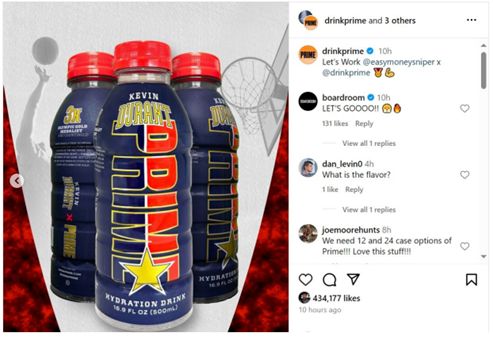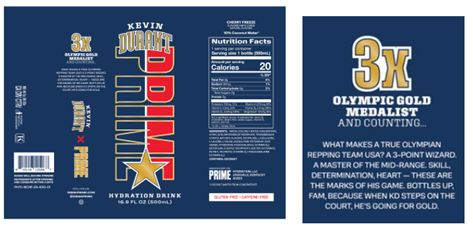With Opening Ceremonies in Paris just days away, athletes all over the world are getting ready for high-stakes performances.
Back home, the U.S. Olympic and Paralympic Committee (the "Committee") is busy too. In addition to coordinating training and funding for the U.S. Olympic and Paralympic teams, the Committee keeps close watch for brands attempting to unfairly capitalize on Olympic fanfare leading up to and during the Games. With increased scrutiny all but certain over the next few weeks, this post highlights two important guidelines for advertisers to bear in mind during the Olympics: restrictions on use of Olympic intellectual property and Rule 40's sponsorship restrictions.
Olympic Intellectual Property
The International Olympic Committee owns numerous Olympic properties, such as the words OLYMPIC, OLYMPIAN, and OLYMPIAD; the five interlocking rings; and imagery of the Olympic torch and flame. The U.S. Olympic and Paralympic Committee is charged with protecting Olympic intellectual property in the United States for the benefit of the Olympic movement. It owns many federal trademark registrations and pending applications for Olympic-related marks, such as TEAM USA, GO FOR THE GOLD, LET THE GAMES BEGIN, and ROAD TO PARIS. In addition to trademark rights governed by the Lanham Act (15 U.S.C. § 1051 et seq.), the Committee has separate and additional legal authorization under the Ted Stevens Olympic and Amateur Sports Act to use and control the use of Olympic imagery in the United States and file suit against uses that falsely suggest a connection with the Committee or its affiliates. 36 U.S.C. § 220506. Unlike Rule 40's restrictions (discussed below), which only apply during certain "blackout dates," these rights are not tied to the timing of specific games.
The Committee recently flexed its muscles against beverage company Prime Hydration, alleging that the company willfully infringed the Committee's rights by promoting an Olympic-themed hydration beverage in collaboration with the Olympic basketball player Kevin Durant (who is not a named party in the case):


The lawsuit—United States Olympic & Paralympic Committee v. Prime Hydration LLC, No. 24-cv-02001— was filed in the U.S. District Court for the District of Colorado on July 19, 2024, and alleges "millions of dollars" in damages, among other types of relief. It serves as a strong reminder to brands about the risks associated with advertising featuring Olympic intellectual property and athletes.
Rule 40
Rule 40 of the Olympic Charter limits how competitors, team officials, and other team personnel who participate in the games can be depicted in advertising of non-Olympic sponsors during the Games. The rule was revised in 2019, and the International Olympic Committee established a set of Key Principles explaining how participants can engage in, and benefit from, commercial activities around the Games. These Key Principles apply to the Paris 2024 Games.
The U.S. Olympic and Paralympic Committee has also issued guidance for U.S. athletes. Under this guidance, a non-Olympic sponsor seeking to run marketing targeted toward a U.S. audience during the Rule 40 blackout period (July 18 – August 13, 2024 for the Olympic Games and August 21 – September 10, 2024 for the Paralympic Games) with an athlete who is competing in the Paris 2024 games must complete the Committee's "Personal Sponsor Commitment" form via the Committee's Rule 40 Permissions System. Rule 40 permission allows two types of athlete marketing: (1) generic marketing of the product, service, and brand, which includes one or more athletes or (2) athlete-recognition marketing reflecting a personal sponsor's support of an athlete's participation in the games. The two types of marketing cannot be combined.
The Committee further divides athlete-recognition marketing into two categories: (1) athletes thanking personal sponsors and (2) personal sponsors recognizing athletes and/or their performance. Athletes may thank personal sponsors who have obtained Rule 40 permission on their personal social media channels and personal websites a total of 7 times during the blackout period. The "thank you" advertising cannot mention or promote the personal sponsor's products or services; use Olympic or Paralympic intellectual property; or imply a relationship between the personal sponsor and Team USA, the Committee, the Olympic or Paralympic movements, or the Games. There is no limit to the number of times athletes may thank official sponsors, but they cannot thank official sponsors and personal sponsors in the same message. Personal sponsors may repost a single athlete thank you on the original social media channel, without further text or edits, during the blackout period. Personal sponsors cannot engage in paid advertising to support reposts of athlete thank you messages.
Personal sponsors with Rule 40 permission may create and post 1 message congratulating or recognizing each sponsored athlete's performance or providing other well wishes. The message can only be posted to the personal sponsor's social media accounts and/or corporate websites targeted to a U.S. audience and may be posted through multiple social media channels so long as the copy and creative are the same. Traditional media (e.g., print, TV, out-of-home) may not be used to recognize athletes during the blackout period. The post cannot mention or promote the personal sponsor's products or services; use Olympic or Paralympic intellectual property; use any still or moving images of the athlete at the Games; imply a relationship between the personal sponsor and Team USA, the Committee, the Olympic or Paralympic movements, or the Games; or be supported by paid advertising. Additional guidance and examples of compliant and non-compliant posts are available through the Committee's Rule 40 permissions website.
The content of this article is intended to provide a general guide to the subject matter. Specialist advice should be sought about your specific circumstances.

